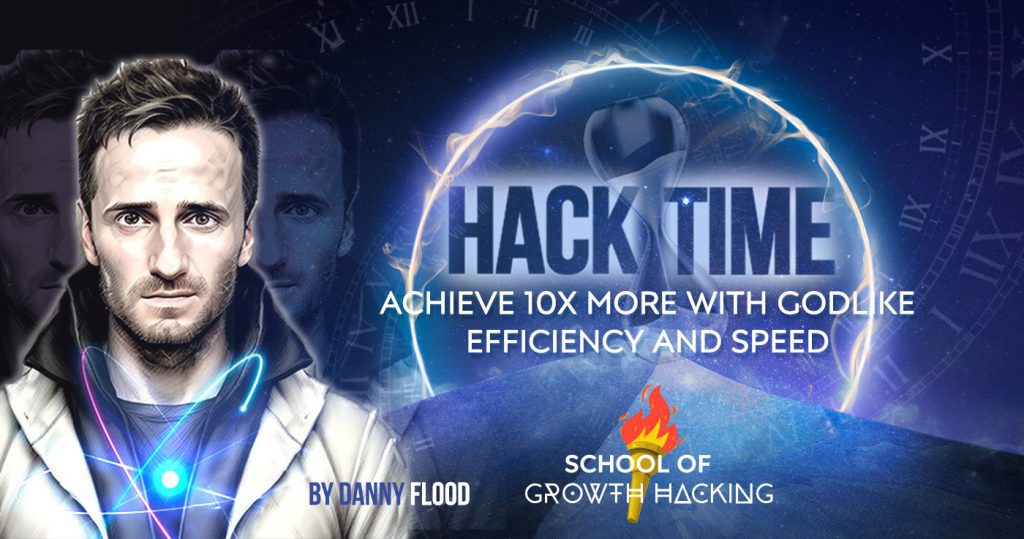This is a lesson from the course “Hack Time, Achieve 10x More” @ The School of Growth Hacking. If you like this post, use the discount code “gambler336” to get 20% off the entire course.
Have you ever heard the saying, “A wealthy man has many concerns. A hungry man has only one?”
Fyodor Dostoyevsky, the great literary giant and author of the book “Crime and Punishment,” had a rather unique ritual to get things done.
Whenever he became comfortable off of his professional success, he deliberately gambled away his money.
Suddenly, without all of the trappings of wealth, his true purpose once again materialized. He was forced into a position where he needed to produce or starve.
Interestingly, Dostoyevsky wrote a novel called “The Gambler” in just 26 days to — you guessed it — pay off a gambling debt.
Create a sense of urgency
I had unknowingly stumbled upon this “gambler’s secret” when I was 13 years old.
In seventh grade, I underperformed in public school. My parents sent me to a boarding school called the “Army Navy Academy.” Each night, we were subject to a mandatory “quiet time” study period. I spent most of those evenings goofing off and playing Starcraft.
During lunch, I would quickly eat and rush back to my room to type up my English essays just before my afternoon class.
I wrote far faster and far better during those 20 minutes than I ever would have during the previous night’s two hour study period. And guess what? I got an A on EVERY single essay! For the first time in my life, I achieved a 4.0 GPA, and made the honor roll. It wasn’t until much later in life that I realized (and appreciated) what had taken place.
The power of time constraints

And so what I have learned do is I develop the habit and the practice of taking as little time as possible to do things by setting time constraints. A time constraint is simply how we narrow down the window of time that we have to do specific things.
For example, I don’t purchase memberships at places like co-working spaces or gyms. If I had a monthly membership for a co-working space or even a daily pass, the incentive would be on me to get as much use out of that as possible. And with an indefinite abundance of time, my perception of time slows down and I would relax, take much longer to do things that I could do much faster, and fill up my to-do list with a whole bunch of things that are really important because of that abundance of time.
But if I can create a false scarcity of time, by training myself to operate this way, and make it a habit, it normalizes getting things done faster.
If I am a freelancer, such as a graphic designer, the more hours that I am able to bill a client, the more that I get paid. But if I am a business owner who needs to create a design, there is no incentive to take as long as possible, it’s the opposite. I want to get the test done as quickly as possible with a good result.
And so it’s like the two opposite lenses of a telescope. We need to make sure that we are looking through the right end of the telescope, always.
Implementation
Now that we understand the importance and the power of creating these time constraints let me give you a few real world examples so that you can also start to create these for yourself.
Last year, I read in a scientific study that when we exercise for longer than 30 mins, brain starts to produce cortisol, which is the stress hormone. After 30 minutes the workout becomes more difficult, and we become less and less focused as the workout wears on.
Long-term travel forced me to create time constraints by its very nature. I quickly found that the nature of long-term travel and the digital nomad life is such that you have far less time to get work done.

When I lived at home, there were so many different things that I took for granted. But in a new country or a new city such as this, I don’t know where to get a haircut, I don’t know where to go shopping, I don’t know where I need to go to get my computer repaired.
All of these different things that I took for granted before, suddenly can take 10 times longer to do. And of course if I am continuously traveling, I’m often on the road or in the air, and the actual time I have to sit down and about myself to work matters may only be 1 or 2 hours.
And so from this lifestyle, I had to force myself to learn how to get all of the highest value activities done in the shorter window of time.
There was always a sense of urgency.
This apartment where I am recording this course, I have rented for 2 weeks. And I said it my utmost priority to complete this entire course within that 2-week window. And because I had this sense of urgency created by these time constraints, I was able to get about 80 to 90% of the course done in just one week.
This is all because I have trained myself to work within these time constraints. If I had rented this apartment for say, two months, maybe it would have taken me two months to make this entire course instead of two weeks.
Perhaps without me realizing it or not, I would have likely filled up my to-do list with all kinds of unimportant things.
And that brings us back to the quote at the beginning of this lesson, and it is the reason why a wealthy man has many concerns and a hungry man has only one concern… to focus on.
So what I want your homework to be after you read this, is to take a good hard look at things that you spend a lot of time doing. If you spend 90 minutes at the gym on a typical workout, can you constrain that workout to a higher intensity workout within a 45-minute window?
It could be anything in your life. Can you condense your 60 minute Zoom calls into 30 minute calls?
Take a good hard look in and start taking these actions, and you’ll soon be able to see the value in short, intense, focused action where you don’t fill up your time with all sorts of minutiae just to fill the time.

For more content on this check out the course, “Hack Time, Achieve 10x More” @ The School of Growth Hacking. Use the discount code “gambler336” to get 20% off the entire course and enjoy!





